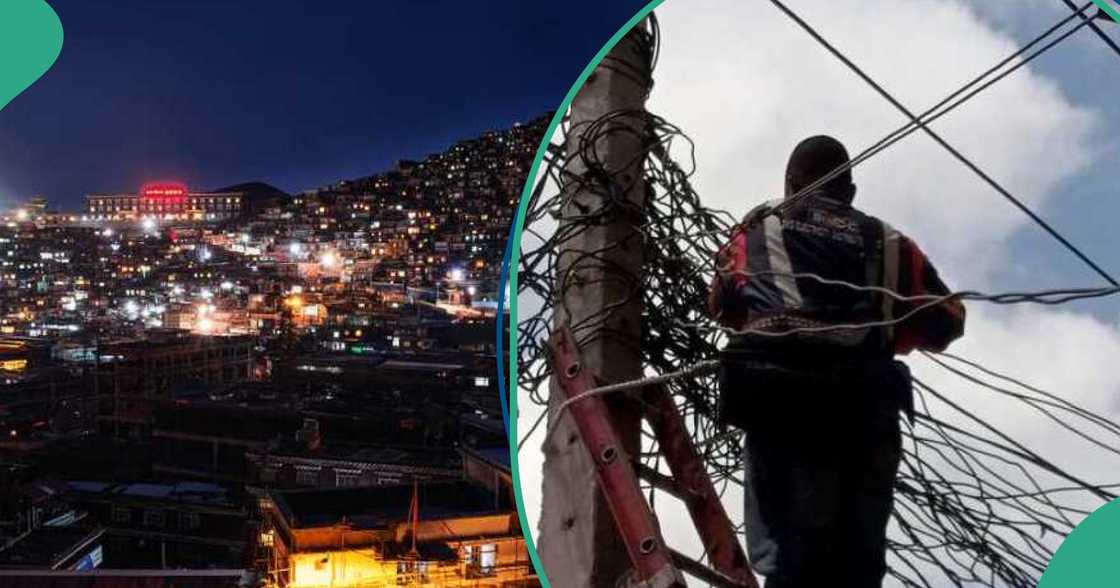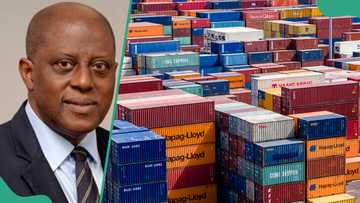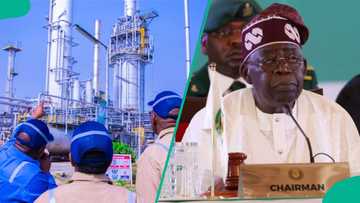Nigeria’s Hourly Power Generation Now at 4,681MW, 3% Up From 2024
- While Nigeria's power sector has still not been able to hit the 6,000MW target set by the government, there appears to be some progress
- Recent data from the NERC shows that hourly power generation has increased by 3% in 2025, up from the last figure in December 2024
- There, however, remains a lot to be done as the installed power plants are still below 40% generation capacity
Legit.ng journalist Ruth Okwumbu-Imafidon has over a decade of experience in business reporting across digital and mainstream media.
Nigeria’s hourly power generation has increased to 4,681MW, marking a 3% growth from the 4,524MW hourly average recorded in December 2024.
The Nigerian Electricity Regulatory Commission (NERC) disclosed this in a recent data shared on its website.
While this is still below the 6,000MW target set by the federal government for December 31, 2024, it indicates that some positive activities are happening in the sector.

Source: Getty Images
According to the operational performance fact sheet released by NERC on Monday, the top performing power plants with the highest contribution to the grid in January 2025 include the Egbin power plant, with an hourly average of 538MW, the Kainji Hydro Power plant, with 459MW hourly, and the Delta Power Plant with 443MW hourly.
The total 4,681MW is pooled from 28 power plants across the country.
Power generation is still suboptimal
Despite being higher than the power generation average in December, the power plants are still performing suboptimally.
The Vanguard reports that the power plants are performing at 39.2% capacity with 5,339MW, compared to the installed capacity of 13,625MW.
The government has made several promises and set deadlines, including taking huge loans from the World Bank to meet these targets, but Nigeria is yet to hit the 6,000MW benchmark.
Diversifying power generation to regional grids
In the face of the energy deficit, the Federal government has resorted to diversifying power generation and using regional grids to supplement the power generation with renewable energy sources.
Managing Director of the Rural Electrification Agency (REA), Abba Abubakar Aliyu, stated recently that the idea was to implement low-cost electrification strategies, like mini-grids, that would be both efficient and sustainable.
This could hopefully lead to better power supply and less incidence of national grid collapses in 2025.
According to him, the agency is implementing up to 21 mini-grid projects across different local government areas in Jigawa state to provide electricity for about 300,000 people.
Recall that this was part of solutions offered by former power minister Professor Barth Nnaji on resolving the Nigeria power problem.
FG targets $15bn investment into power sector
In related news, the federal government of Nigeria has said that it wants to attract up to $15 billion in private investments into the power sector.
The government also unveiled plans to increase the electricity tariff for Nigerians to reflect the full cost, as the current price only covers about 65% of the cost.
The Nigerian government still spends trillions of naira on energy subsidies despite removing subsidies for Band A subscribers last year.
Proofreading by James, Ojo Adakole, journalist and copy editor at Legit.ng.
PAY ATTENTION: Сheck out news that is picked exactly for YOU ➡️ find the “Recommended for you” block on the home page and enjoy!
Source: Legit.ng





